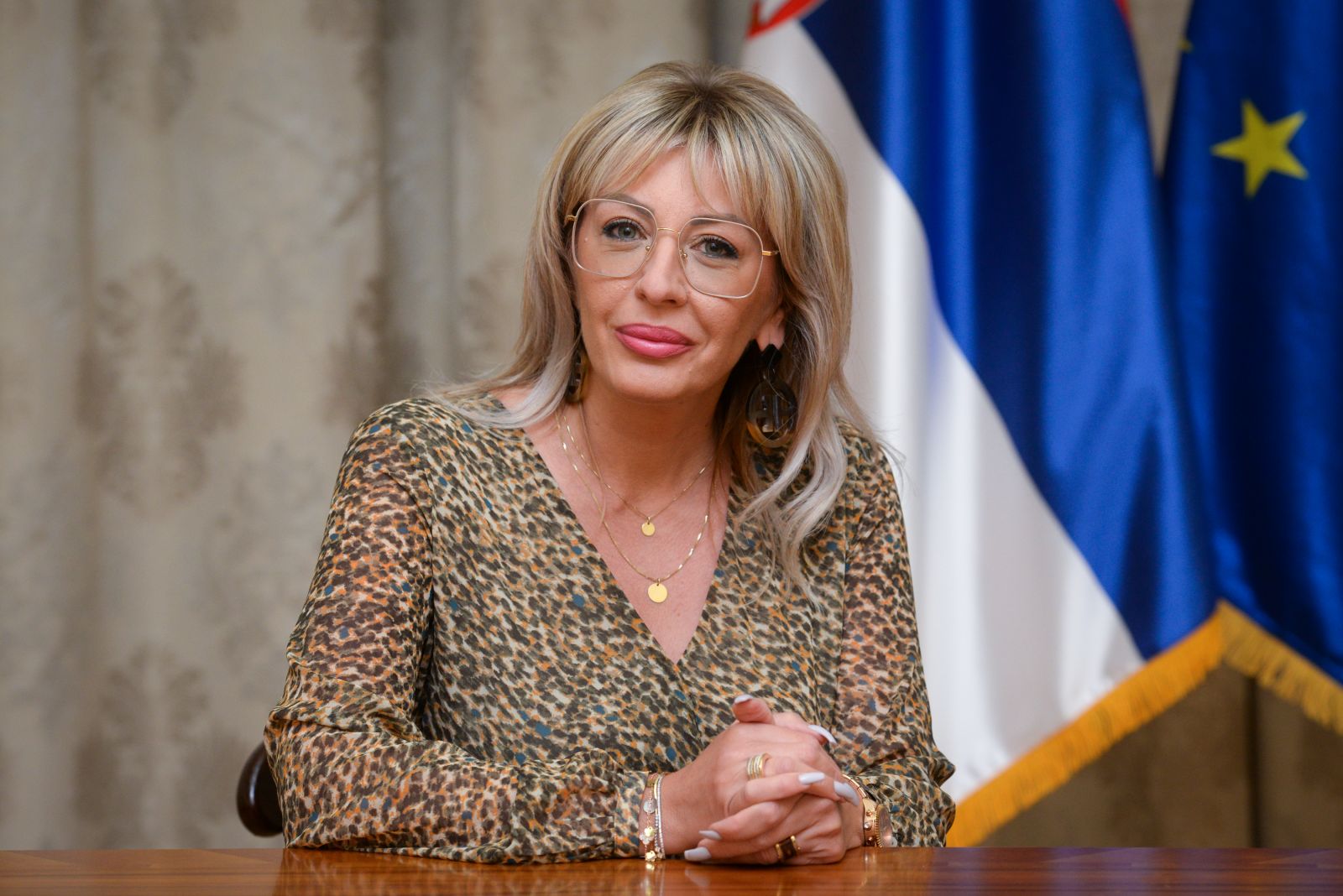
Membership perspective clearly underlined at the Summit
Despite the fact that the Brdo EU–Western Balkans Summit ended without the adoption of the timeframe for the WB region’s accession to the EU, Minister of European Integration Jadranka Joksimović believes that Serbia’s road to Brussels has not been called into question.
In her interview for Novosti, she has talked about the messages of the Summit, why certain countries are tripping Serbia up, and whether Serbia will make at least one step towards the “European family” by the end of the year.
Following the Brdo Summit and the refusal of Slovenia’s proposal to make 2030 a possible year of accession, is it clear that Serbia’s European path has been called into question?
The idea was not to put 2030 as the year of our country’s accession, because we all negotiate individually and not as a package. That was also particularly emphasised in the criteria of the new negotiation methodology. Slovenia’s idea was for this reference year to represent the latest date for accession of partners from the Western Balkans. What is more, the 2018 Credible enlargement perspective for the Western Balkans, which then EC President Juncker presented in Belgrade, states 2025 as the year of possible accession of the frontrunners in the accession process, i.e. Serbia and Montenegro, if everyone – both we and the EU – does their part of the job. So, the framework for us already exists, it is not a promise but a possibility that we strive to realise through the acceleration of the reform process and the new negotiation methodology, despite a number of challenges. Based on everything that President Vučić and I heard both at the plenary meeting and in the discussions we had on its margins, the clear perspective of our region’s membership in the EU has not been called into question; on the contrary, it has been underlined and restored. The very fact that the topic of the Western Balkans was discussed for four hours at a time when the entire world is facing the effects of the COVID-19 crisis, migration and disturbances on the energy market, speaks in favour of an empowered leadership of the common European vision, which has been losing its impetus in recent years. Slovenia, as the EU presidency, was one of the main promoters of a clearer perspective for our region, but it was certainly not alone in it.
Why do Germany, the Netherlands, Denmark and Belgium often trip Serbia up on its European path? How do you comment on frequent statements from Zagreb that Serbia is “not well behaved” and that it cannot join the EU as such?
What message is Brussels sending by continuously postponing enlargement and will there come a time when Serbia will give up on the EU?
The enlargement policy entails the negotiation process which should result in membership and which lasted very long for all countries. A country cannot become an EU member overnight, although it is true that the criteria have been made stricter and politically sharper after the last rounds of enlargement. Serbia is part of Europe, and there is nothing more natural than for it to become part of the EU. There are countries that are constantly cautious towards the idea of enlargement and they’ve had this attitude before. As regards the possibility of Serbia giving up, the results of the latest public opinion poll conducted by MEI, where as much as 57% of citizens said they would vote for membership at the referendum, shows how ungrounded this idea is.
Do you expect that Serbia will manage to open a cluster this year or that some of the countries will block it off?
Reforms in Serbia are not stagnant, unlike the enlargement process that has been procedurally at a stalemate for the entire region for almost two years. Everyone is involved in the reform process, from the President and the Prime Minister to the line ministers. We are ready for the opening of two clusters – Competitiveness and inclusive growth, and Green Agenda and sustainable connectivity. The work on constitutional amendments in the area of judiciary, on the Action Plan for the implementation of the Media Strategy, and on the fight against corruption has been brought to the highest level with the involvement of the President and the Prime Minister. I expect this to be acknowledged in the upcoming EC report on Serbia.
Source: Večernje novosti






